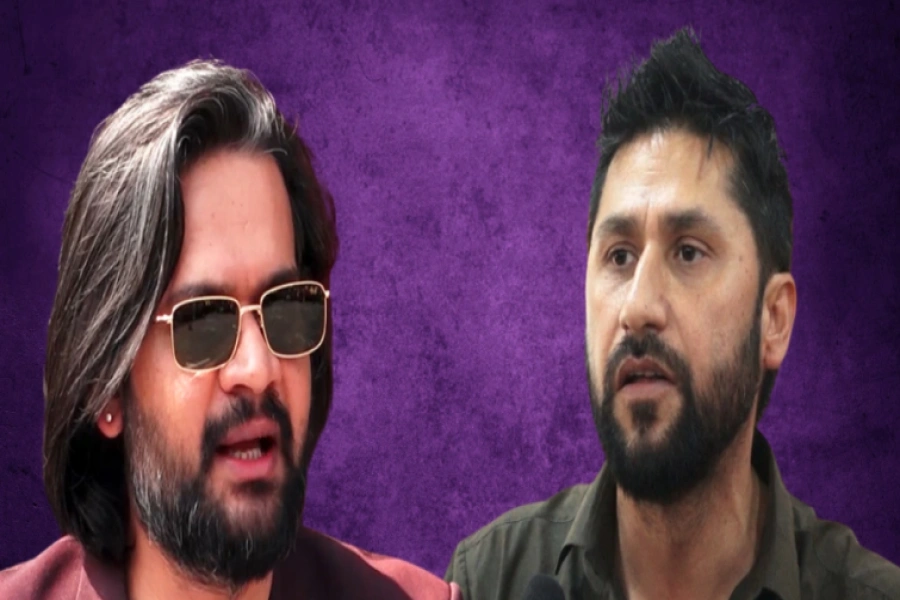NEW YORK – Leon Trotsky may not claim a mass following nowadays, but the revolutionary tactics that he pioneered remain very much in use, and not only by communists or in today’s Russia, where they are called “political technology.” One such tactic, known as “entryism” – when members of an extremist group join, subvert, and ultimately take over a more powerful organization, which they then use as a political weapon – has gained adherents among far-right groups in the United States. Their target: America’s military.
On January 6, the US got a glimpse of how far this infiltration has gone. Of the hundreds of supporters of former President Donald Trump who stormed the US Capitol in an effort to disrupt the certification of President Joe Biden’s election victory, around 15% have served or are currently serving in the US military (about 7% of US adults are veterans). According to The Washington Post, of the 380 of the people now facing federal charges stemming from the riot, some 44 are current or former US armed forces members.
US Secretary of Defense Lloyd Austin – a retired four-star general and the first African-American to lead the Pentagon – is now attempting to reckon with the implications of these findings. Almost immediately after his confirmation, Austin ordered a 60-day “stand down” of all US military forces. In other words, virtually every unit in the armed forces would have to hold a discussion about the prevalence of white supremacy and extremism in the ranks.
This process has now been concluded, and the Pentagon has ordered a series of “immediate changes,” including better information collection (to discern the scope of the problem) and updating transition instructions (to warn those leaving the military of the dangers posed by extremist groups). A working group has been established to oversee implementation, and to chart a path toward intermediate and long-range goals.
But this is only a start. As Austin no doubt recognizes, rooting out extremism in the US military will be an uphill battle. On a recent drive through Maryland’s Eastern Shore – a conservative enclave where many retired and active police and military live – I was shocked to discover that every third house seemed to be flying a pro-Trump flag.
Democratic departure: On Joe Biden bowing out of the presidenti...

One cannot separate Trump from the witch’s brew of white supremacy, contempt for the rule of law, and nationalist authoritarianism that animates far-right extremist groups like the Proud Boys, Oath Keepers, and Three Percenters. These groups threw their support behind the former president, who communicated with them in dog whistles (and, at times, even more explicitly than that).
The evidence of far-right military entryism is not just anecdotal. Beyond the findings about the Capitol riot, more than one-third of all active-duty troops and more than half of minority service members have personally witnessed examples of white nationalism or displays of racist ideology within their ranks.
Worse, there is reason to worry that entryism extends to the military’s top brass. For starters, Lieutenant General Michael Flynn – Trump’s former national security adviser, who was convicted of lying to the FBI (but pardoned by Trump) – was among the most prominent voices calling for Biden’s election victory to be overturned.
More worrying, Flynn’s brother, Lieutenant General Charles Flynn, was in the room for a key phone call during the Capitol riot: the Capitol police and DC officials pleaded with the Pentagon to dispatch the National Guard, but top Army officials were reluctant to oblige. The Army denied his presence on the call for days.
It is difficult to overestimate the danger entryism can pose. When Trotsky devised it, he infiltrated the Czarist army with revolutionary cadres to sow unrest and disrupt the chain of command. When the Bolshevik Revolution produced the Soviet Union, Trotsky became the founder and head of the newly created Red Army.
This may have been entryism’s greatest triumph, but it is hardly the only one. As the historian Paul Jankowski showed, a decade before World War II officially began in the Pacific, discipline within Japan’s military had been disrupted by small ultra-nationalist cells. Many followed the radical Buddhist preacher Nisshō Inoue.
Nisshō’s organization, Ketsumeidan (Blood Pledge Corps), orchestrated the assassination of Finance Minister Junnosuke Inoue and the director-general of Mitsui, Dan Takuma, in the spring of 1932. This assassination campaign also claimed the life of Prime Minister Inukai Tsuyoshi, as well as those of many other ministers and commercial leaders deemed insufficiently devoted to Japanese imperialism. Soon, the Japanese military began falsifying incidents in order to facilitate ever-deeper incursions into China.
In France, officers who opposed their country’s disengagement from Algeria in the late 1950s and early 1960s divided the army from within. In 1958, after the French government attempted to open negotiations with its main opponent, the Algerian National Liberation Front, military leaders staged a coup d’état. To save itself, the Fourth Republic recalled General Charles de Gaulle to power (after a 12-year absence). De Gaulle promptly junked the Fourth Republic for one dominated by the executive, the Fifth Republic, which exists today.
Despite de Gaulle’s popularity, his maneuvers to grant Algeria independence were met with a second rebellion within the military. The Organisation Armée Secrete (Secret Armed Organization) waged a terrorist campaign across France, almost succeeding in assassinating de Gaulle. The wounds the OAS inflicted on the French military took decades to heal.
As far as anyone can tell, the US military is not on the verge of an internal breakdown, let alone primed to stage a coup d’état. But few predicted anything like the US Capitol riot before protesters equipped with body armor, stun guns, and zip-ties breached the building. Before the US is blindsided again, its leaders must act resolutely to root out extremism in the military.
Beyond the actions the Pentagon has outlined, Austin should demand – and publicly share – a transparent explanation for why the Army lied about Charles Flynn’s participation in the phone call with the Capitol police on January 6. Flynn now commands all US Army forces in the Pacific. No one with extremist ties should be occupying such a pivotal post.
Nina L. Khrushcheva, Professor of International Affairs at The New School, is the co-author (with Jeffrey Tayler), most recently, of In Putin’s Footsteps: Searching for the Soul of an Empire Across Russia’s Eleven Time Zones.
Copyright: Project Syndicate, 2021.
www.project-syndicate.org




































